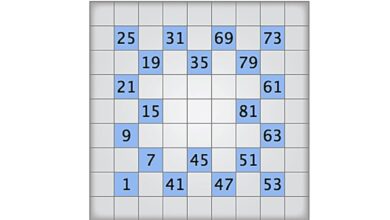Cornell Scientists Have Identified a Cellular Process Related to Post-Partum Depression


The research indicated that autophagy could also be impaired in pregnant ladies who go on to develop postpartum melancholy.
Postpartum melancholy is linked to an absence of a cell clean-up course of.
Researchers from Weill Cornell Drugs, Johns Hopkins College College of Drugs, and the College of Virginia Well being have found that pregnant ladies who go on to develop post-partum melancholy (PPD) could have diminished autophagy, a mobile course of that helps clear cells of particles.
“Our analysis signifies that autophagy could also be dampened in pregnant ladies who go on to develop PPD, so their cells are accumulating an rising quantity of junk or unhealthy byproducts from metabolic processes within the physique,” mentioned the paper’s first writer Dr. Lauren M. Osborne, vice chair for medical analysis for the Division of Obstetrics and Gynecology at Weill Cornell Drugs. Dr. Osborne performed the analysis whereas on the Johns Hopkins College College of Drugs’s college.
Researchers famous of their paper, which was lately revealed within the journal Molecular Psychiatry, that understanding the underlying mechanisms of PPD would possibly assist docs higher handle the dysfunction.
PPD is a extreme psychological sickness that places each the well being of the dad or mum and the kid in danger. The situation impacts one in each eight ladies, making it the commonest postpartum complication.
“If we might work out a organic means of predicting which individuals are vulnerable to PPD, then we might higher intervene throughout being pregnant to forestall this sickness,” Dr. Osborne mentioned.
The researchers determined to conduct the primary research of its variety and analyzed the function of messenger RNA in extracellular vesicles (EV) in PPD. Extracellular vesicles are membrane-bound structures that allow cells to exchange proteins, lipids, and messenger RNA involved with cell communication. Previous studies have shown that EV levels increase during pregnancy.
“We know that extracellular RNA communication is involved in important aspects of pregnancy like how the placenta forms and problems such as gestational diabetes and preeclampsia,” Dr. Osborne said. “It made sense to also study its role in PPD.”
The researchers studied blood plasma samples collected from seven non-depressed pregnant women who went on to develop PPD and seven controls who did not have the disorder. The samples were taken during the second and third trimesters of pregnancy, and at two weeks, six weeks, three months, and at six months after childbirth.
While the study was small, researchers found a significant difference between the two groups. Laboratory and computational analyses of the blood samples found that EV messenger RNA levels during pregnancy and the postpartum period were altered in women who went on to develop PPD.
Notably, levels of EV mRNA associated with autophagy were lower in the PPD blood samples. How this directly connects to the development of PPD needs to be determined with further research, Dr. Osborne said.
To verify their findings, Dr. Osborne and her colleagues want to perform a study of 600 women representing various racial and ethnic backgrounds.
“If we replicate our initial research, the study could form the basis of a biological test for pregnant women to help predict PPD,” Dr. Osborne said. “This could help doctors to prevent and manage the condition, whether through nonpharmacologic means like mindfulness, yoga and neurofeedback, or medications such as selective serotonin reuptake inhibitors.”
Reference: “Altered extracellular mRNA communication in postpartum depression is associated with decreased autophagy” by Lauren M. Osborne, Jennifer L. Payne, Morgan L. Sherer, and Sarven Sabunciyan, 22 September 2022, Molecular Psychiatry.
DOI: 10.1038/s41380-022-01794-2
The study was funded by the National Institutes of Health.
#Cornell #Scientists #Recognized #Mobile #Course of #Associated #PostPartum #Despair
Source



